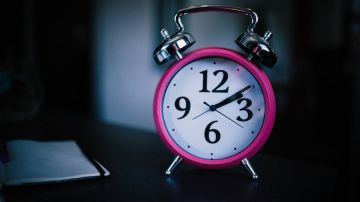Want to Sleep Better? Improve Your Sleep With These Tools
Enough sleep—the secret to a successful, healthy life according to Arianna Huffington (and Bill Gates, me!)—can difficult to come by without real discipline

Photo: Unsplash/@mpho_mojapelo
Enough sleep—the secret to a successful, healthy life according to Arianna Huffington (and Bill Gates, me!)—can difficult to come by without real discipline. But even though we tend to view sleeping a lot as a luxury at best, or a sign of laziness at worst, it is in fact an essential ingredient in building the life you want.
Poor sleep can affect everything from our relationships, to our accomplishments at work, to our ability to control our emotions. But did you know a lack of sleep can also make you fat, cause hypertension, and increase your risk for Type 2 Diabetes? To avoid these frightful outcomes, and feel a lot better, follow these rules for better sleep.
Scale Down Your Activity Two Hours Before Bed
If you like taking baths, a nighttime bath can be a great sleep accelerator. If not, try spending the hour before bed engaged in an activity you find calming, like reading or playing a board game with your kids. And no, watching stressful TV dramas doesn’t count. The idea is to disconnect from your worries and obsessions enough to give your brain a rest before bed (this practice may reduce the frequency of anxiety dreams, too).
Disconnect Your Wifi at Night
Do you ever find yourself lying in bed, running through your mental checklist for the next day, and then suddenly think, “I wonder what Eva Mendes is up to—didn’t she have a baby?” Before you know it you’re reaching for your tablet or phone and scanning US Weekly. The problem is, you might be sacrificing more sleep than you think when you do this; not only those few minutes spent scanning the web are lost—looking at the light from a screen at night tells the brain that it isn’t bedtime. Our brains then suppress the sleeping hormone melatonin, making it much more difficult to fade off into dreamland, even after we’ve put our electronic devices away.
Instead of searching the web or watching TV, get ready for sleep with calming activities: a hot bath, reading a book, listening to some mellow music, talking with loved ones, or a relaxing family game.
It’s What You Eat!
Avoid fatty foods at night, especially if you have acid reflux. The acid can disrupt your sleep, causing your body to work instead of recharge during sleep. Reduce caffeine and sugar after lunch, as they can stay in our systems for many hours, preventing relaxation and keeping sleep at bay. A few crackers or a small piece of bread before bed, on the other hand, can help promote sleepiness.
Stay Consistent: Follow a Sleep Pattern
Wake up at the same time every day, even on weekends. It might feel wrong to pass up the chance to sleep in, but by sleeping late on Sundays, we make Monday mornings much harder. Not only are we having to transition from the weekend back to work, but we are also feeling what has been termed, “social jetlag.” This means your body clock is disoriented because of changes in the weekend sleep schedule.
Optimize Your Sleeping Environment
During the day, take five minutes to inspect your bedroom and make notes about how to improve the sleeping field. What should you look for? Use this checklist:
Reduce electronic light sources—any little red or blue lights from TVs, Internet routers, or stereos can be disrupting your sleep, so make sure they are covered before bedtime. Once this is taken care of, make sure your curtains are thick enough to block out the morning sun.
Consider the thermostat. Research has shown that our brains function better the next day when we sleep in a cool room. Use blankets instead of the heater as much as possible to stay warm in bed.
Block out noise. If you can hear street sounds from your bedroom, consider investing in a noise machine to block inconsistent sounds that can disrupt your zzzs.
Try a Sleep App
Sleep technology is the latest, greatest way to improve sleep. Apps like Sleep Cycle and Sleep As Android monitor your movements and body temperature throughout the night, and in the morning provide you with a graph indicating your quality of sleep at every hour. These programs vary, but several of them are capable of telling you about your phases of sleep—how often did you get into deep sleep, how often did you wake up?
Some apps even record you as you sleep to monitor any snoring or talking you might be doing. Why is this information useful? Because if you can measure the quality of your sleep, you have the tools to improve your slumber. Goodbye fatigue, hello new life.
Have any sleep tips you’d like to share with the Hip Latina community? Tweet us @Hip_Latina!

















